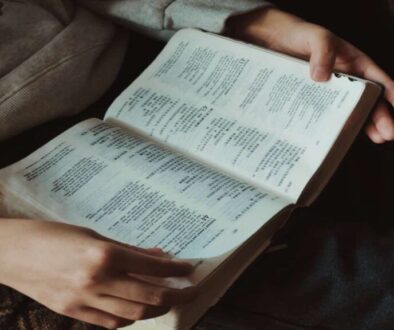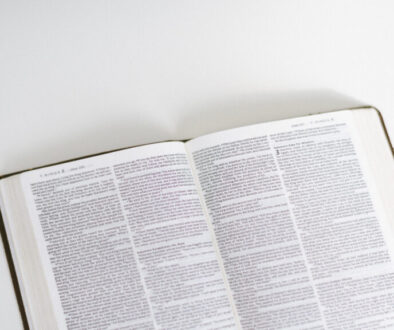What Does It Mean to take the Lord’s Supper Unworthily (1 Cor. 11:27)?
Apostle Paul devoted 1 Cor. 11:17-34 to teach the believers in Corinth on the significance of, and proper conduct at, the Lord’s supper. In verses 27-30 he wrote:
“Therefore, whoever eats this bread or drinks this cup of the Lord in an unworthy manner will be guilty of the body and blood of the Lord. But let a man examine himself, and so let him eat of the bread and drink of the cup. For he who eats and drinks in an unworthy manner eats and drinks judgment to himself, not discerning the Lord’s body. For this reason, many are weak and sick among you, and many sleep.” (I Cor. 11:27-30 NKJV).
Paul did not write here that anyone in the Corinthian church was unworthy of eating the Lord’s supper. What upset Paul was the improper manner in which they were conducting themselves at the Lord’s table. The rich ones among them were conducting themselves in a manner that tended to show them as occupying a superior class to the poor members. There was “class” division in their midst (v. 18).
The Corinthian Christians were bringing their own food from home which were eaten at the meeting place as the Lord’s supper. But there were poor ones among these Corinthians who came for the feast with the hope that the rich ones will share their food with them. Unfortunately, the well-to-do ones turned their own food to some “private suppers” meant for themselves alone(v 21). So, while the rich ones gorged themselves with their food and inebriated themselves with excess of wine the poor members sat by and gazed at them, with nothing to eat at the Lord’s table. The sacred evening meal ordained by God became perverted and turned into an occasion for gluttony, self-centeredness and lack of care for others. Worse was that they were oblivious of the fact that the bread and the wine were emblems representing the body and blood of the Lord Jesus Christ (John 6:51-56; Luke 22:19, 20; 1 Cor. 11:24, 25). So, they ate the supper as a normal banquet which was contrary to the sacredness of the ordinance of the Lord’s supper. This coupled with the failure of the rich ones to share their private suppers with the poor members was what elicited Paul’s anger about the Corinthians. Such a profane way of eating at the Lord’s table and lack of care for one another was not expected to be seen in the fold of God’s people. They would not have come under God’s discipline if they had eaten their private meals at home before going for the Lord’s supper. But eating the suppers at the meeting place with such irreverence for the ordinance as well as shaming the poor members brought judgment on then: “That is why many of you are sick and weak, and several have died.” (v. 30 GNT).
The Lord’s supper was ordained to commemorate the love of God by making His Christ die a sacrificial death on a tree on our behalf. Those celebrating this highest height of sacrificial love are expected to show love for others by sharing with them what they have been blessed with. The lack of care exhibited by some of the Corinthian Christians at the Lord’s supper was therefore the direct opposite of what they came to celebrate. This made their feast unacceptable to God.
Contrary to what most churches teach, Paul was not talking, as it were, about sinful living in this passage. The Christian church of the first century was very much unlike today’s churches where sinful men find it easy to be in the church for many years while they remain in their sins. He was addressing the unchristian manner the Corinthian believers conducted themselves at the sacred evening meals. The word “unworthily” (Greek: “anaxios”) is an adverb whichmodifies the manner in which the supper was taken; it is not an adjective that qualifies the members of the church. It is important that our churches need to ensure that they don’t sidestep God’s teachings and begin to teach their human doctrines tainted with “holier-than-thou” hypocrisy.
The consequences of irreverence for God’s ordinances and allowing classism in the church is very grave. Paul wrote that this was the cause of many sicknesses and untimely deaths in the Corinthian church. This is why we must do everything to avoid pride and partiality in the church. We must not trifle with a seemingly innocuous sin but which has led to many infirmities, sicknesses and premature deaths in the early years of the Christian church. Whether at the Lord’s supper or any of our meetings, we must not allow undue preferential treatment to be accorded some people because of their wealth or privileged social and political positions. For example, there is no tenable reason why some group of people are served special meals at camp meetings while others are served meals for the “common” people. There is no reason why everyone should not eat the same food. Even if different grades of accommodation are available at such camps, some acceptable minimum standard of comfort should be available to all campers. There should be no reason why the poor ones are left to sleep on bare floors in the open halls and exposed to mosquitoes. Many have left the camps with avoidable malaria and other infections. The deplorable conditions many campers are made to undergo at our camp meetings, especially in Nigeria, show the depth of disdain many church leaders have for their members, especially the poor ones. It is unacceptable in God’s sight. See 1 Tim. 5:21 and James 2:1-10.
In today’s churches, the Lord’s supper is served by giving the communicants small pieces of bread after which they are served the wine in small plastic cups. This means the problem that crept into the Corinthian church have been addressed by them. But are they free from fault? No. Many churches take the supper at frequencies other an annual one – on the 14th day of Abib or Nisan, which usually falls between late March and early April of the Gregorian calendar. Many churches celebrate the supper at any time of the day but the appointed time is after sunset, during twilight. In the Catholic Church, only the clergy drink the wine while the members are given only the bread. The Jehovah’s Witnesses mark it on the 14th day of Abib or Nissan at twilight but they say only those who are among the 144,000 people mentioned in Rev. 7 and 14 should take it. So, on the 14th of Abib/Nissan they gather at their Kingdom Halls at twilight where the bread and the wine is passed round with no one taking it. In some churches they do not celebrate the Lords Supper at all. We see therefore that the churches, by their noncompliance with the ordinance of the Lord’s supper, have not fared better than the Corinthian church. All our churches need to go back to the Bible and begin to learn it anew. There have been too many human perversion of God’s word flowing around in almost all our churches.
Paul’s call for self-examination
Apostle Paul wrote, “Everyone ought to examine themselves before they eat of the bread and drink from the cup” (1 Cor. 11:28 NIV).
Today, this verse has been taught as if the apostle was calling for introspection on one’s hearts prior to the time of the supper. But the truth is that Paul related this verse to the immediate preceding verse, the unworthy manner they’ve been eating the Lord’s supper. Here in verse 28, the apostle was calling for repentance. He was admonishing them not to continue abusing and desecrating the Lord’s supper, an irreverence and abuse which was viewed by God grave enough to make Him punish a number of them with sicknesses and deaths. He was not talking about introspection in regard to other areas of life. However, this does not mean that he was excusing sin in any form. The Christian life is not that of sinning. It is a life of faith in God coupled with genuine repentance from sin resulting in righteousness and godliness.



